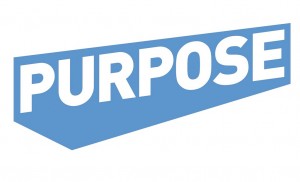From time to time I come across articles or blogs that I feel would be a good fit or addition to my business ethics blog. As a business ethics speaker, I know all to well the importance in developing a sound ethics policy and John’s comments below (presented with his approval) establish a sound outline for the beginning of that process.
There are definite advantages to owning your own business when you want to establish an ethics policy. You see, ethics come from the top. Without setting an example at the top, it is often difficult, if not impossible, to convince your employees that they, too, should be ethical in their business dealings. A well-defined ethics policy, along with an outline of related standards of conduct, provides the framework for ethical and moral behavior within your company.
What are the benefits to developing such a policy, you may be wondering. The benefits include higher employee morale and commitment, which in most cases leads to higher profits. However, higher profits should not be the motivating factor in defining your ethics policy.
An ethics policy should look at the bigger picture of how we relate to society as a whole and what our responsibility is to the greater good. Of course, in these days of downsizing and increasing change, some may argue that these ideals are unrealistic. However, it is important to note that most of the opponents of good ethics are focusing on short-term versus long-term results. Many organizations which have participated in the downsizing mania are beginning to realize that they have traded long-term employee morale and productivity for short-term profit margins.
The bottom line is “what goes around, comes around.” If you treat your employees with disrespect and distrust, chances are they will do the same toward you.
When you are developing your ethics policy, you must decide what it is you want your company to stand for, put it in writing, and enforce it. According to industry experts you can base your policy on five fundamental principles:
- Purpose. A purpose combines both your vision as well as the values you would like to see upheld in your business. It comes from the top and outlines specifically what is considered acceptable as well as unacceptable in terms of conduct in your business.
- Pride. Pride builds dignity and self-respect. If employees are proud of where they work and what they are doing, they are much more apt to act in an ethical manner.
- Patience. Since you must focus on long-term versus short-term results, you must develop a certain degree of patience. Without it, you will become too frustrated and will be more tempted to choose unethical alternatives.
- Persistence. Persistence means standing by your word. It means being committed. If you are not committed to the ethics you have outlined, then they become worthless. Stand by your word.
- Perspective. In a world where there is never enough time to do everything we need and want to, it is often difficult to maintain perspective. However, stopping and reflecting on where your business is headed, why you are headed that way, and how you are going to get there allows you to make the best decisions both in the short-term as well as the long-term.
A company policy is a reflection of the values deemed important to the business. As you develop your ethics policy, focus on what you would like the world to be like, not on what others tell you it is.
Learn to Supercharge Your Business by creating value with your business ethics. Contact Information for John Freeborn: johnf@fdg-global.com


